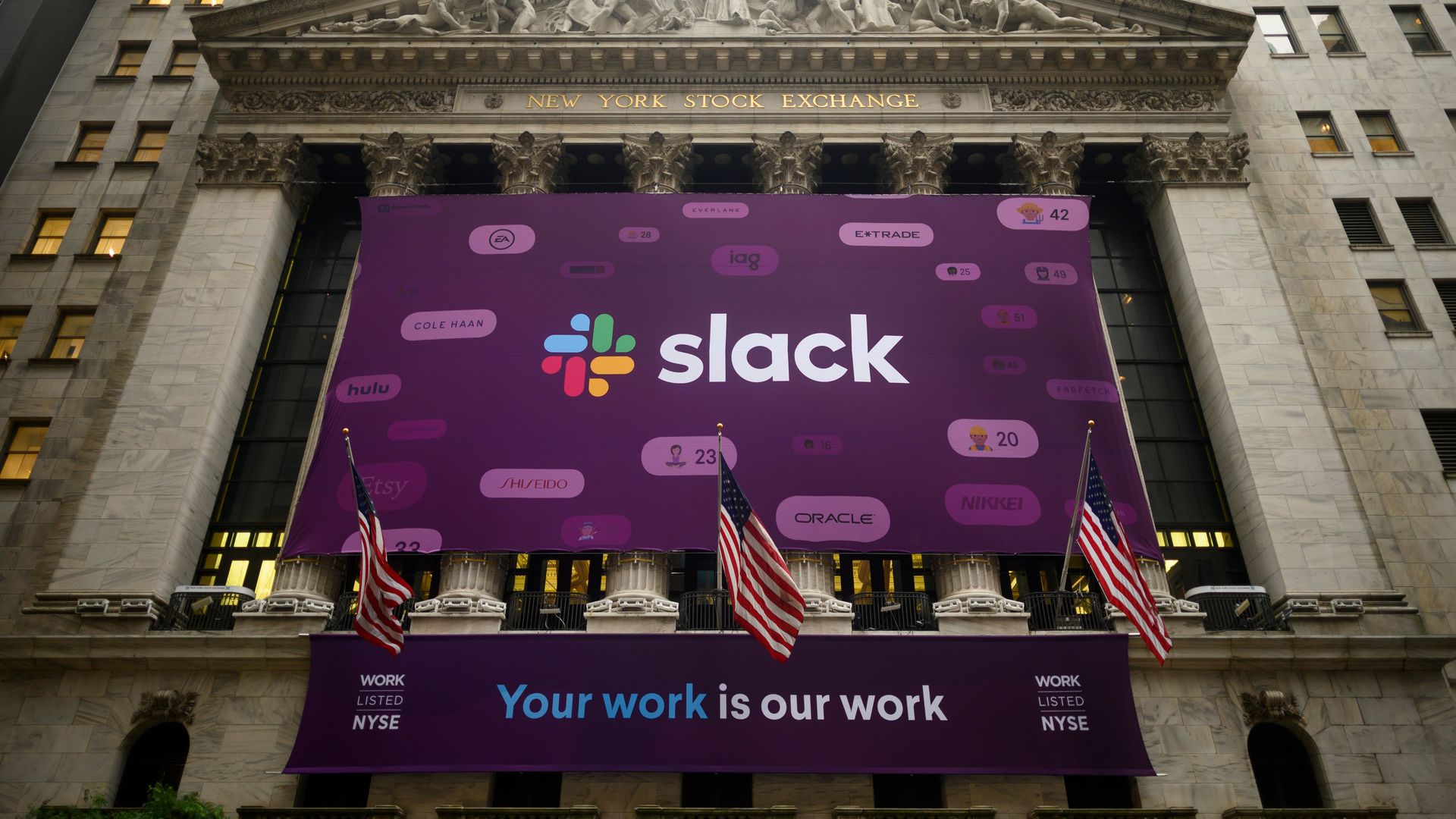Creating the perfect IPO
Add Axios as your preferred source to
see more of our stories on Google.

Photo: Johannes Eisele/AFP/Getty Images
When Slack went public last week via a direct listing, it got the benefits of algorithmic market pricing, speed and lower fees. But it didn't raise any capital for what remains a money-burning enterprise, as it would have via a traditional IPO, nor did it get to pick its new investors.
The big picture: The question, therefore, is if IPO and direct listing structures could be combined so as to receive the best of both floats. The answer is yes. Probably.
Slack drafted behind a legal framework developed last year by Spotify and securities regulators.
Two of its primary features were that a direct listing couldn't include underwriting (i.e., no intermediaries that sell or forecast, nor pricing stabilization) and that its registration statement needn't include bona fide pricing estimates before being made effective by the SEC.
- There's also been discussion of how direct listings enabled both Spotify and Slack to (mostly) eliminate lockups, but that's correlation without causation. We're seeing more flexible lockups structures in traditional listings and a company could theoretically IPO without any lockups (if it could get underwriter approval).
To create a hybrid structure, an issuer would borrow from the Spotify precedent and add in elements of the modified Dutch auction process that Google used to go public in 2004 (which was viewed dimly at the time, thus discouraging copycats, but which worked in retrospect).
- It wouldn't be as clean as a direct listing in that it would move a bit slower with more Wall Street involvement.
- It would differ from what Google did in that it would provide 100% insider liquidity and not use a preliminary price range.
- But it would solve the "price guess" dilemma, provide liquidity and give some greater control over the public investor base — all while also adding cash to corporate coffers. And, again, lockups shouldn't be an issue.
The highest hurdle, banking sources tell me, would be finding a company that wants to do it.
There's still a belief that direct listings will only work with a "household name" issuer (yes, Slack counted), and that's a limited universe. Then narrow it even further, as most companies don't want the hassle of working out all the complications with SEC officials (that price range issue would be thorny).
- Airbnb makes all sorts of sense for its anticipated offering, which we now hear is more likely in Q1 2020 than in Q4 2019, but it's unclear if CFO Dave Stephenson has the same HBS case study ambitions as Spotify's Barry McCarthy.
The bottom line: Just because it could be done doesn't mean it will be done, as VC-backed "unicorn" disruption rarely extends to their own securities.
